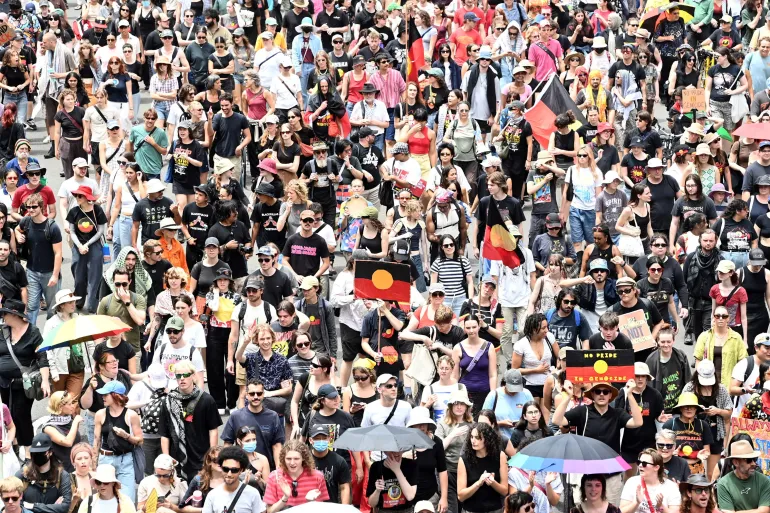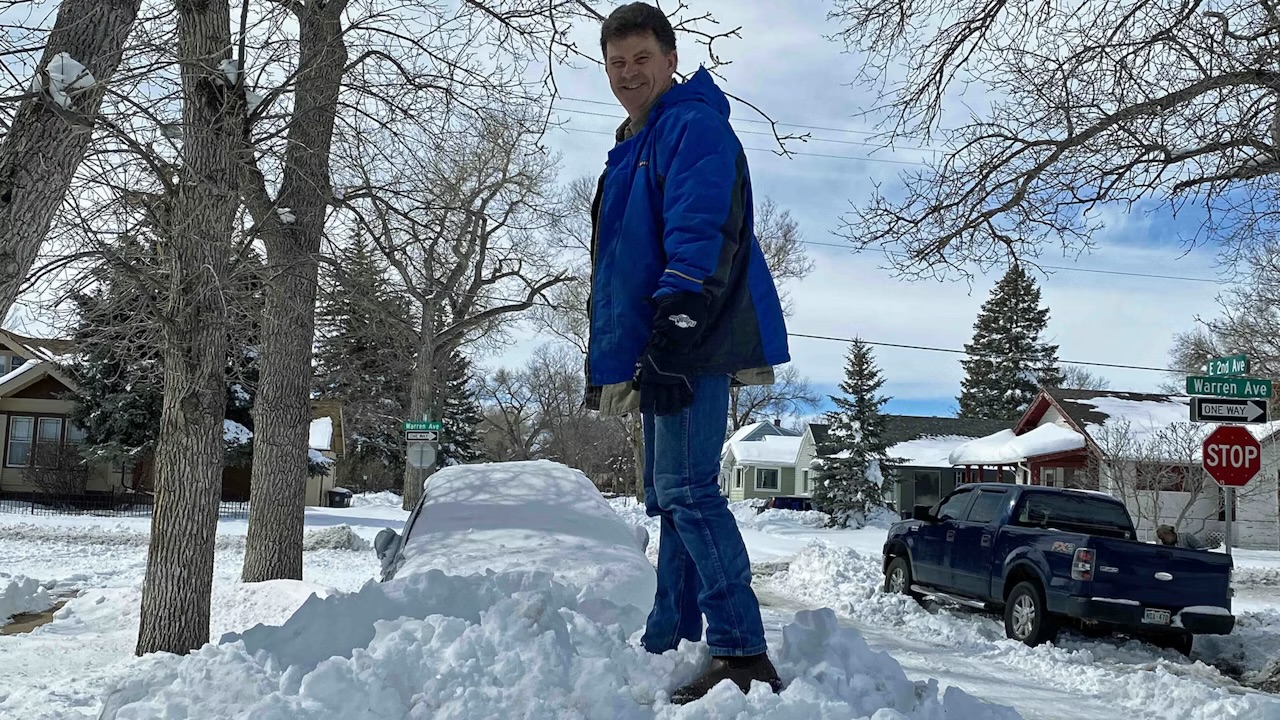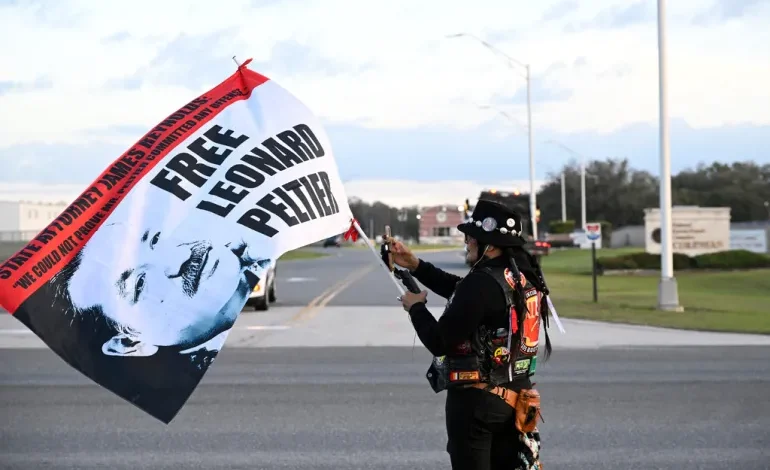Native American activist Leonard Peltier walked out of a federal detention center in Coleman, Florida, on Tuesday morning after nearly five decades of incarceration, Al Jazeera reports.
His release follows a commutation granted by former United States President Joe Biden in the final hours of his presidency.
The 80-year-old Peltier, a member of the Turtle Mountain Band of Chippewa Indians, emerged from the facility and was escorted away in an SUV without making a statement. His release marks the end of a long and controversial chapter, as he was convicted in 1977 for the murder of two FBI agents.
Peltier’s case has become a rallying cry for Indigenous rights activists around the world. Groups like Amnesty International and prominent figures such as actor Robert Redford have long advocated for his freedom, arguing that his trial was flawed and based on suppressed evidence.
In a statement released by the NDN Collective, an activist group, Peltier declared:
“Today I am finally free! They may have imprisoned me but they never took my spirit! I look forward to seeing my friends, my family, and my community. It’s a good day today.”
He is expected to return to his home on the Turtle Mountain Reservation in Belcourt, North Dakota, where a homecoming celebration is planned for Wednesday.
Peltier’s conviction stems from a 1975 shootout at the Pine Ridge Indian Reservation in South Dakota, where FBI agents Jack Coler and Ronald Williams were killed while attempting to serve an arrest warrant. The agents encountered members of the American Indian Movement (AIM), including Peltier, at the Jumping Bull Ranch, leading to a deadly confrontation involving as many as 30 people.
Peltier fled to Canada after the shootout but was later extradited to the United States for trial. While he admits to firing his weapon in self-defense during the incident, he has consistently denied shooting and killing the agents. Prosecutors alleged the agents were shot at point-blank range, a claim Peltier refutes, stating he was not near them at the time of their deaths.
Supporters have consistently pointed to irregularities in the 1977 trial, alleging that critical evidence was suppressed and that a key witness later recanted her testimony, claiming she was coerced into implicating Peltier.
The FBI’s history of surveillance and harassment against Native American activist organizations and other civil rights groups during that period has fueled the argument that Peltier’s case represents a double standard within the justice system. Furthermore, Peltier’s declining health, including partial blindness, diabetes, and heart trouble, prompted family members to plead for his compassionate release.
However, Peltier’s potential release has been met with fierce opposition from the FBI and law enforcement groups. Ahead of a parole hearing last year, then-FBI Director Christopher Wray condemned his possible release as “an affront to the rule of law.”
Despite this opposition, pressure for Peltier’s freedom grew, with Interior Secretary Deb Haaland, a member of the Laguna Pueblo tribe, and international figures like the Dalai Lama and Pope Francis adding their voices to the call for his release.










The latest news in your social feeds
Subscribe to our social media platforms to stay tuned